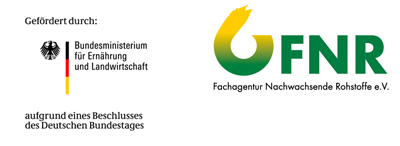KoFEBio
KoFEBio – Method to monitor the function of electrostatic precipitators in biomass combustion plants by capturing the operation parameters
Biomass is the most important renewable energy source in the heating sector. About 13 % of the heat in Germany is provided by renewables. With 10 %, biogenic fuels represent by far the largest share. Biomass is therefore very important for the heating sector. However, thermal biomass utilisation is not only about reducing CO2 emissions, but also about local pollution caused by dust particles, for example, in the flue gas of combustion plants. At present, mainly electrostatic filters are used for the active separation of particles (so-called secondary measures for exhaust gas cleaning).
Within the framework of new specifications at EU level (Medium Combustion Plant - MCP Directive 2015/2193), more stringent control measures are required for plants with a thermal input of more than 1 MW. In Germany, the requirements within the framework of the current TA Luft and the plants within the framework of the 4th BImSchV are thus affected. Most biomass plants are heating plants or combined heat and power plants.
In future, monitoring of effective continuous operation will be required for the separation and flue gas cleaning systems for all systems of this performance class upwards. Continuous dust measurements in the cleaned flue gas would be a suitable technical possibility for this. However, the available continuous dust measurement methods are usually too cost-intensive - especially for smaller plants - and some measurement methods cannot be used with electrostatic precipitators for technical reasons.
The project is therefore working on a methodology that will make it possible, especially for electrostatic precipitators, to monitor the effective continuous operation (of the flue gas cleaning systems) very cost-effectively on the basis of existing current and voltage values of the systems. The method is also very suitable for smaller plants, such as those used in Germany within the framework of the 1st BImSchV. The aim is to comply with the valid limit values during operation of the plant.
The method can be used to derive the very meaningful characteristic filter availability, which permits a completely new and very efficient evaluation standard in future regulations (e.g. BImSchV). Filter availability is the ratio of effective filter running time to firing operation determined under operation, i.e. taking into account all real and plant-specific boundary conditions, which are very complex, especially for the combustion of biomass. This efficient monitoring can also replace highly complex test procedures on separator test benches, with which the real condition can be simulated but never satisfactorily reproduced. This will provide the authorities, politicians and the entire biomass industry with a tool that will very effectively and pragmatically strengthen confidence in the technology and promote the use of biomass in the heating sector.
We are very grateful for the support and promotion of the project by the Agency for Renewable Resources.
